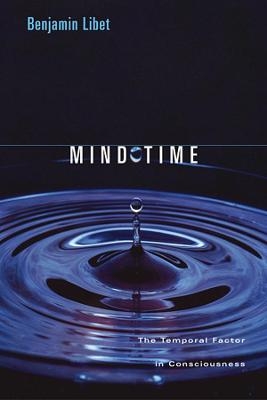
Mind Time
The Temporal Factor in Consciousness
Seiten
2005
Harvard University Press (Verlag)
978-0-674-01846-4 (ISBN)
Harvard University Press (Verlag)
978-0-674-01846-4 (ISBN)
Over a long and distinguished career Libet has conducted experiments that have helped us see, in clear and concrete ways, how the brain produces conscious awareness. For the first time, Libet gives his own account of these experiments and their importance to our understanding of consciousness.
Our subjective inner life is what really matters to us as human beings--and yet we know relatively little about how it arises. Over a long and distinguished career Benjamin Libet has conducted experiments that have helped us see, in clear and concrete ways, how the brain produces conscious awareness. For the first time, Libet gives his own account of these experiments and their importance for our understanding of consciousness.
Most notably, Libet's experiments reveal a substantial delay--the "mind time" of the title--before any awareness affects how we view our mental activities. If all conscious awarenesses are preceded by unconscious processes, as Libet observes, we are forced to conclude that unconscious processes initiate our conscious experiences. Freely voluntary acts are found to be initiated unconsciously before an awareness of wanting to act--a discovery with profound ramifications for our understanding of free will.
How do the physical activities of billions of cerebral nerve cells give rise to an integrated conscious subjective awareness? How can the subjective mind affect or control voluntary actions? Libet considers these questions, as well as the implications of his discoveries for the nature of the soul, the identity of the person, and the relation of the non-physical subjective mind to the physical brain that produces it. Rendered in clear, accessible language, Libet's experiments and theories will allow interested amateurs and experts alike to share the experience of the extraordinary discoveries made in the practical study of consciousness.
Our subjective inner life is what really matters to us as human beings--and yet we know relatively little about how it arises. Over a long and distinguished career Benjamin Libet has conducted experiments that have helped us see, in clear and concrete ways, how the brain produces conscious awareness. For the first time, Libet gives his own account of these experiments and their importance for our understanding of consciousness.
Most notably, Libet's experiments reveal a substantial delay--the "mind time" of the title--before any awareness affects how we view our mental activities. If all conscious awarenesses are preceded by unconscious processes, as Libet observes, we are forced to conclude that unconscious processes initiate our conscious experiences. Freely voluntary acts are found to be initiated unconsciously before an awareness of wanting to act--a discovery with profound ramifications for our understanding of free will.
How do the physical activities of billions of cerebral nerve cells give rise to an integrated conscious subjective awareness? How can the subjective mind affect or control voluntary actions? Libet considers these questions, as well as the implications of his discoveries for the nature of the soul, the identity of the person, and the relation of the non-physical subjective mind to the physical brain that produces it. Rendered in clear, accessible language, Libet's experiments and theories will allow interested amateurs and experts alike to share the experience of the extraordinary discoveries made in the practical study of consciousness.
Benjamin Libet was Professor Emeritus of Physiology at the University of California, San Francisco, and a member of the Center for Neuroscience at the University of California, Davis. Stephen M. Kosslyn is John Lindsley Professor of Psychology in Memory of William James, Emeritus, at Harvard University and Director of the Center for Advanced Study in the Behavioral Sciences at Stanford University.
Foreword Preface 1. Introduction to the Question 2. The Delay in Our Conscious Sensory Awareness 3. Unconscious and Conscious Mental Functions 4. Intention to Act: Do We Have Free Will? 5. Conscious Mental Field Theory: Explaining How the Mental Arises from the Physical 6. What Does It All Mean? Bibliography Index
| Erscheint lt. Verlag | 27.11.2005 |
|---|---|
| Reihe/Serie | Perspectives in Cognitive Neuroscience |
| Vorwort | Stephen M. Kosslyn |
| Zusatzinfo | 21 line illustrations |
| Verlagsort | Cambridge, Mass |
| Sprache | englisch |
| Maße | 140 x 210 mm |
| Themenwelt | Geisteswissenschaften ► Psychologie ► Allgemeine Psychologie |
| Geisteswissenschaften ► Psychologie ► Biopsychologie / Neurowissenschaften | |
| Geisteswissenschaften ► Psychologie ► Verhaltenstherapie | |
| Medizin / Pharmazie ► Medizinische Fachgebiete | |
| ISBN-10 | 0-674-01846-X / 067401846X |
| ISBN-13 | 978-0-674-01846-4 / 9780674018464 |
| Zustand | Neuware |
| Informationen gemäß Produktsicherheitsverordnung (GPSR) | |
| Haben Sie eine Frage zum Produkt? |
Mehr entdecken
aus dem Bereich
aus dem Bereich
Techniken der Verhaltenstherapie
Buch (2024)
Julius Beltz GmbH & Co. KG (Verlag)
35,00 €


